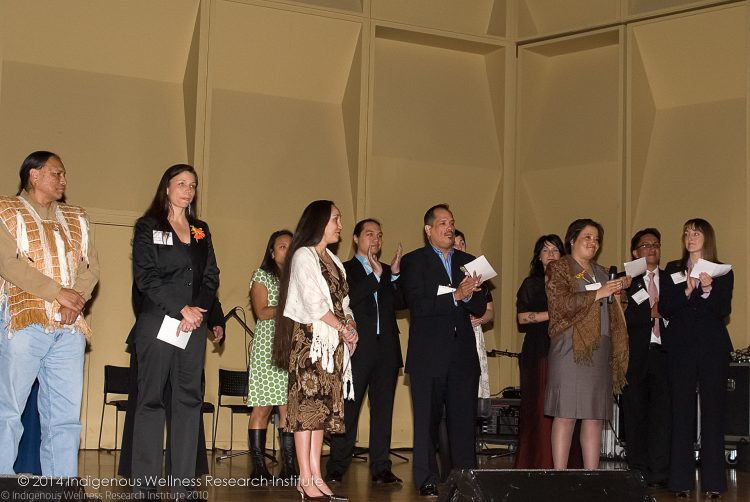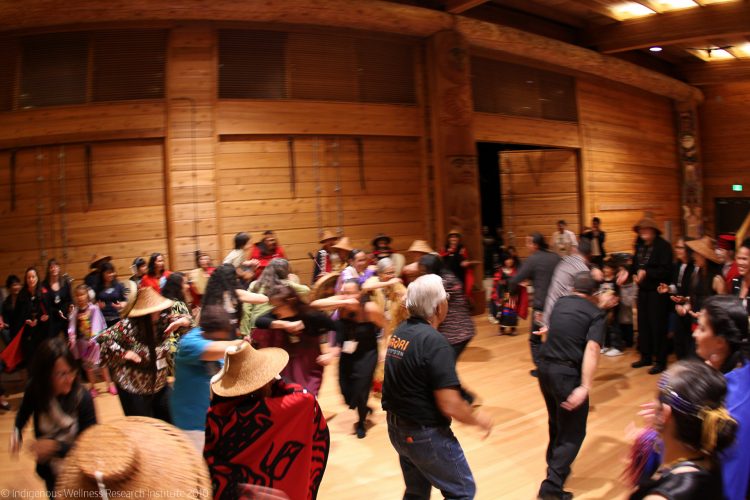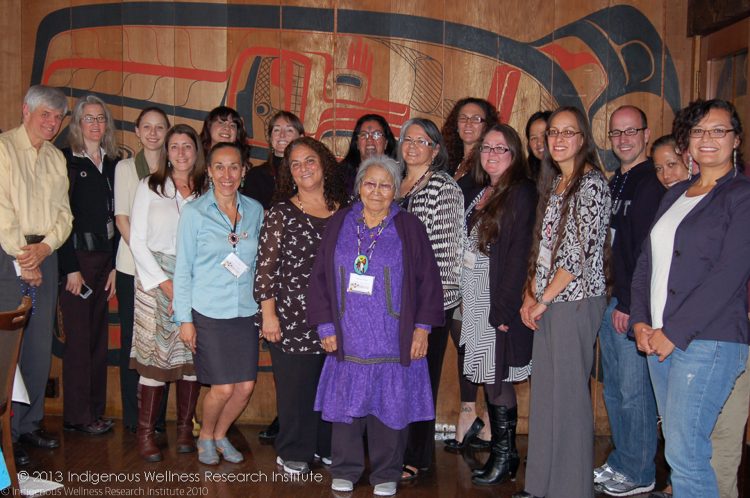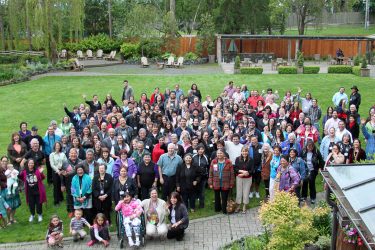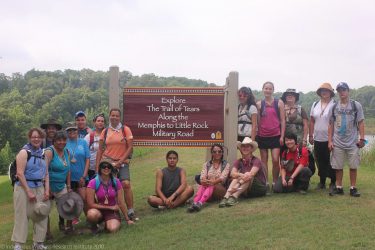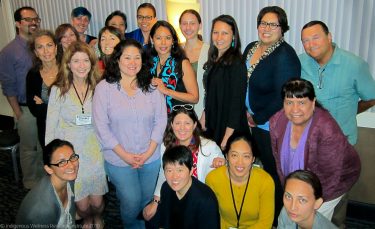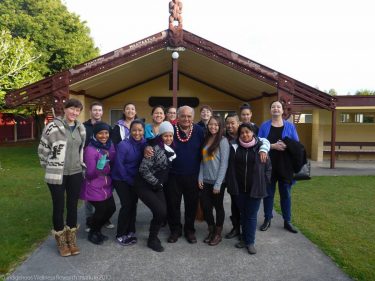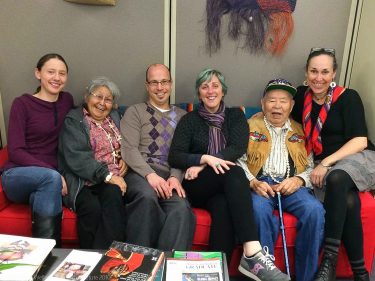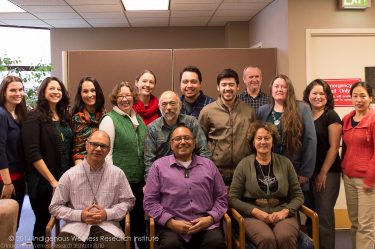News & Events
February 8, 2018
The Indigenous Wellness Research Institute, a Decade of Research, Training, & Service
In 2004, two Native American junior faculty members committed to indigenous wellness (Karina Walters and Tessa Evans-Campbell) and two students at the University of Washington’s School of Social Work (UW SSW) came together to exchange resources, expertise, and contacts to advance research involving Native American populations. Thus was born the “Native Wellness Center,” which remained informal and unfunded for two years. As its reputation grew for health disparities research and intervention among indigenous peoples, the center attracted new faculty and student staffers—a total of four before 2006.
A movement to formalize the center yielded fruit in 2006, when the UW Office of the Provost funded the newly renamed Indigenous Wellness Research Institute “in perpetuity” as an official institute within the UW. After a year of setting up systems and infrastructure, IWRI was introduced to local tribal communities and the UW academic community at a gala kick-off event on April 12, 2007. Karina Walters, the new director of IWRI, wrote in her welcoming letter, “I would like to state our intentions and make a public vow to Tribal Nations and urban Native communities that we are here to conduct community-led research by, with, and for Indigenous communities. As the director of . . . IWRI and on behalf of all of us at the institute, I make this pledge to you and to our families and communities.”
In 2007, with the successful recruitment of Bonnie Duran, IWRI rounded out its three co-directorships. Since beginning with just four people in the informal “Native Wellness Center,” IWRI has grown to support six on-site faculty (including Cynthia Pearson, Myra Parker, and soon-to-join Michael Spencer, in addition to the three co-directors), 13 full- and part-time on-site staff, and several field staff. The institute coordinates more than a dozen active research and training projects and has over 750 faculty and faculty affiliates, trainees, research scientists, American Indian/Alaska Native (AIAN) community partners or affiliates, and partners with several UW and affiliated centers. Altogether, IWRI and its associates represent more than 250 tribes and 37 tribal colleges.
In August 2012, IWRI’s research and training capacity was increased when it was awarded an extremely competitive five-year, National Institutes of Health Comprehensive Centers of Excellence (P60) grant. The “P60” is an infrastructure development grant designed to establish IWRI as a National Comprehensive Center of Excellence devoted to AIAN health and health disparities research and to develop a cadre of NIH-funded AIAN behavioral scientists.
With P60 support, IWRI investigators have secured 46 grants (28 NIH-funded, 9 R01s*) valued at $21 million from 2012 to 2017; published over 264 articles; and mentored over 200 Native investigators across all levels of training. IWRI personnel also made 210 presentations in that same period.
One of IWRI’s most unusual national characteristics as a university-based institute—and its strongest asset—is the fact that five of its six faculty leaders are Indigenous. IWRI faculty and staff infuse the organization with strong, shared values and practice cultural protocols that reflect those values.
Beyond North America, IWRI has extended its mission by collaborating with indigenous individuals and institutions in Hawai’i, New Zealand, Australia, Taiwan, and other areas of the world. Indeed, the Māhina Training Program is in its third cohort, recruiting young indigenous scholars from New Zealand, Hawai’i and North America for on-site, cross-cultural health disparities research training.
In its short history, IWRI has earned an international reputation for being a leader in decolonizing research, cutting-edge health disparities research among under-represented minority communities, and community-based participatory research.
* Definition of an R01. The Research Project (R01) grant is an award made to support a discrete, specified, circumscribed project to be performed by the named investigator(s) in an area representing the investigator’s specific interest and competencies, based on the mission of the NIH.
**IWRI hosted INIHKD (the International Network of Indigenous Health Knowledge and Development) conference in Suquamish Territory
Photos from IWRI’s past ten years:
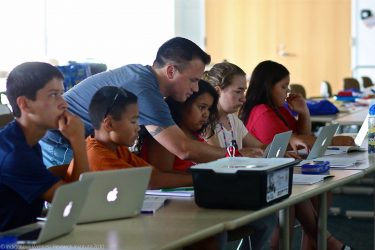
NYEP participants learning to code and program their robots
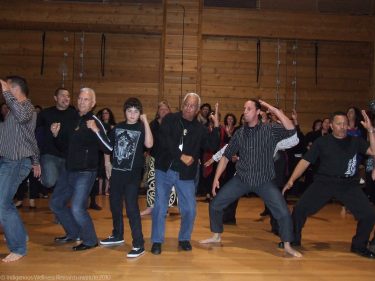
Maori share a Haka at the 2010 INIHKD conference** hosted by IWRI
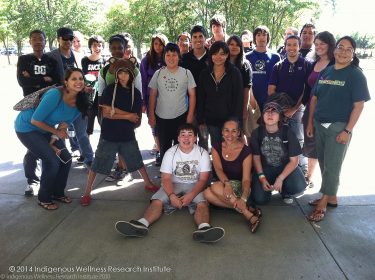
Group photo of NYEP*** participants on a field trip
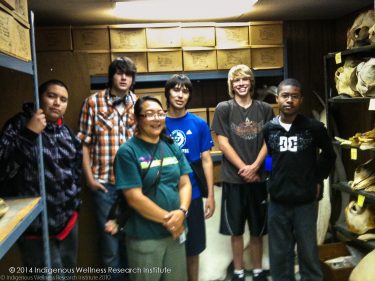
Native Youth Enrichment Program participants visit the UW archeology department.
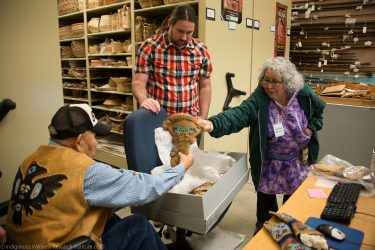
Alaska Native Elders visit the Burke’s collection and share stories about objects in the collection.
